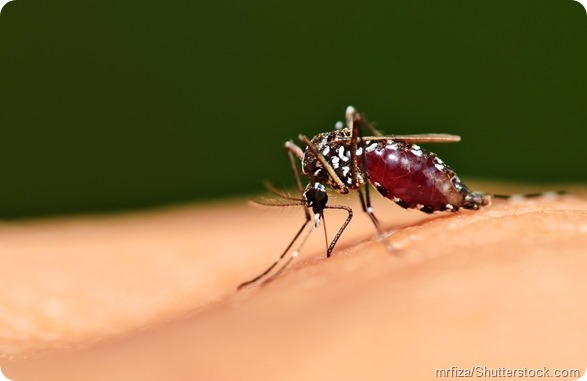The chikungunya virus, which is transmitted to people by mosquitoes (Aedes aegypti and Aedes albopictus), was found for the first time in the Americas on islands in the Caribbean in December 2013. Yesterday, the first case of chikungunya in the continental United States was reported in a man from Florida who had not recently travelled outside the United States.
Chikungunya virus typically causes fever and joint pain, but symptoms can also include muscle ache, headache, joint swelling or rash. Infection with chikungunya virus is rarely fatal, but the symptoms are frequently severe and debilitating. There is no vaccine or specific treatment for chikungunya infection, but infection is thought to provide lifelong immunity.

Cases of chikungunya infection have been found in the United States before, but only in people who have recently travelled to a country where the virus is common. So far this year there have been 243 reported cases in travellers returning to the United States. The latest case is the first instance of chikungunya virus being acquired by a non-traveller in the continental United States.
The Centers for Disease Control and Prevention (CDC) and the Florida Department of Health are investigating how the patient contracted the virus and will be monitoring for any additional locally acquired cases over the coming months.
Roger Nasci, chief of the Arboviral Diseases Branch at CDC commented:
“The arrival of chikungunya virus... emphasizes the importance of CDC’s health security initiatives designed to maintain effective surveillance networks, diagnostic laboratories and mosquito control programs both in the United States and around the world.”
CDC officials anticipate that, like the dengue virus, there will be some cases of imported chikungunya virus being transmitted from travellers to non-travellers in the United States, but do not believe there will be widespread outbreaks. There have already been over 200 imported chikungunya cases and none has triggered a local outbreak.
Travellers experiencing chikungunya symptoms have been urged to seek medical care and to minimise the risk of spreading the virus by avoiding mosquito bites, ie, by wearing insect repellents, using air conditioning or window/door screens to keep mosquitoes out, wearing long trousers and long-sleeved shirts.
Sources